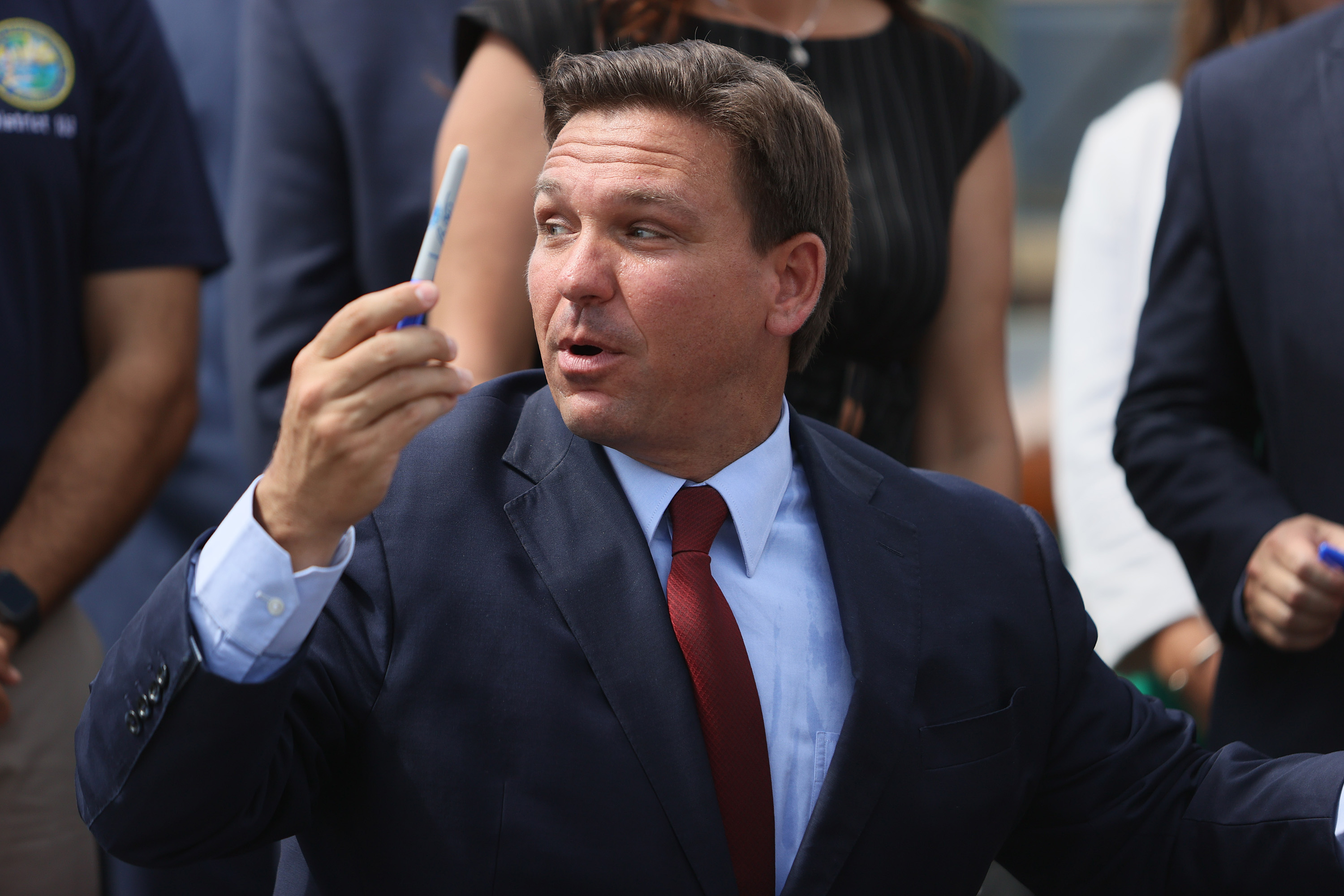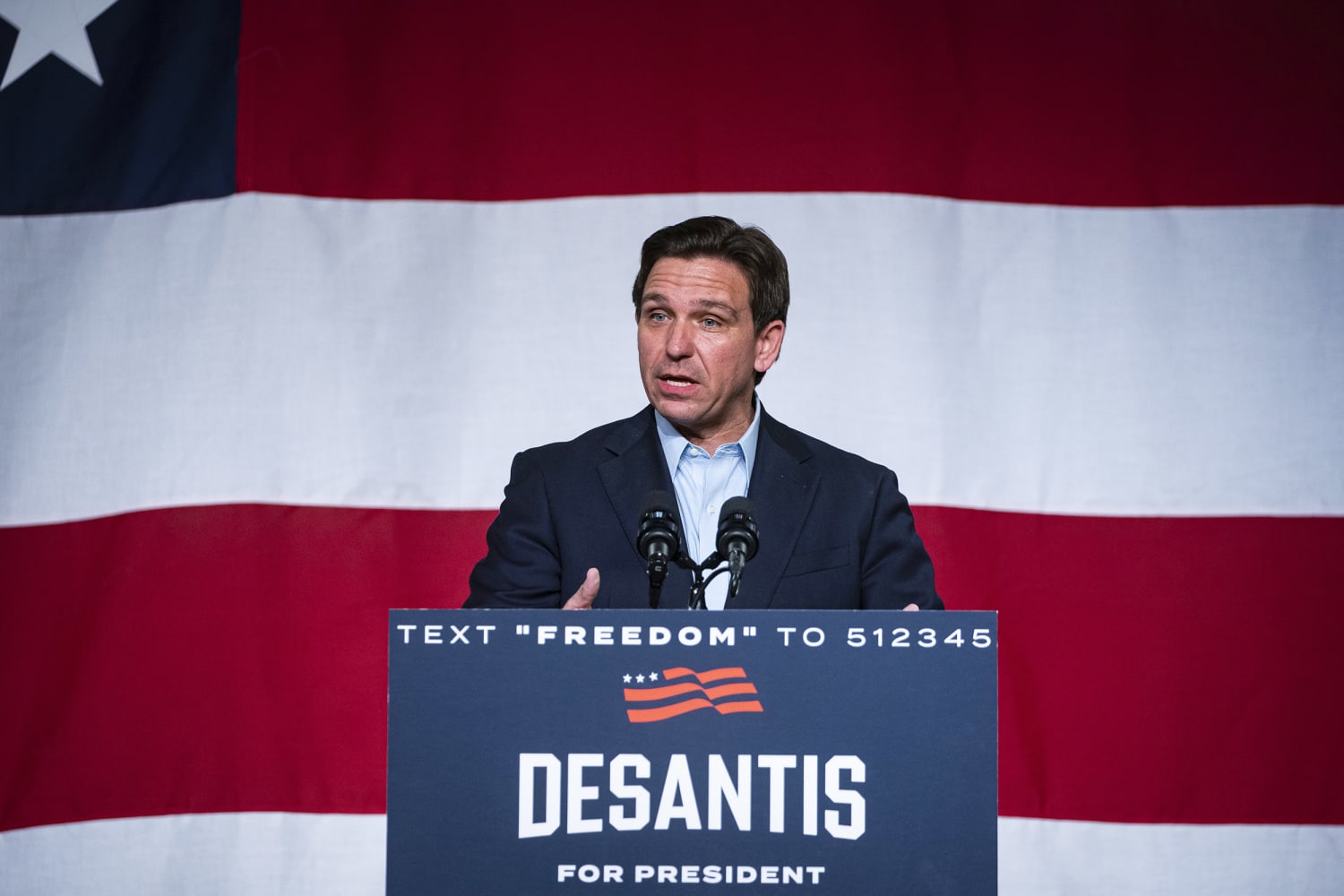Political Impact of DeSantis’ Vetoes

Desantis vetoes – DeSantis’ vetoes have had a significant political impact, both in Florida and nationally. His vetoes have been seen as a way to assert his conservative agenda and to appeal to his base of supporters.
Governor DeSantis’ recent vetoes have sparked controversy, leaving many to speculate about their potential impact. Amidst the ongoing discussions, the Brandon Aiyuk to the Steelers rumors have gained traction. While the football world eagerly awaits the outcome of this potential move, the implications of DeSantis’ vetoes continue to reverberate, shaping the political landscape of Florida.
Impact on Future Elections
DeSantis’ vetoes could have a significant impact on future elections. His vetoes of bills that would have expanded voting access could make it more difficult for Democrats to win elections in Florida. His vetoes of bills that would have addressed climate change could alienate voters who are concerned about the environment. It is too early to say definitively what the impact of DeSantis’ vetoes will be on future elections, but they could have a significant impact.
Legal Implications of DeSantis’ Vetoes

DeSantis’ vetoes have raised a number of legal questions, including whether they are constitutional and whether they can be challenged in court. Some legal experts argue that DeSantis’ vetoes are an unconstitutional overreach of executive power, while others maintain that he is acting within his authority as governor.
One of the main legal issues raised by DeSantis’ vetoes is whether they violate the separation of powers doctrine. The separation of powers doctrine is a fundamental principle of American government that divides the powers of government into three branches: the legislative branch, the executive branch, and the judicial branch. The purpose of the separation of powers doctrine is to prevent any one branch of government from becoming too powerful.
Potential for Legal Challenges
Some legal experts believe that DeSantis’ vetoes could be challenged in court on the grounds that they violate the separation of powers doctrine. They argue that the Florida Constitution gives the legislature the exclusive power to make laws, and that the governor’s veto power is limited to rejecting or approving bills in their entirety. They contend that DeSantis’ vetoes of individual line items in the budget are an unconstitutional encroachment on the legislature’s power.
Implications for the Separation of Powers, Desantis vetoes
If DeSantis’ vetoes are upheld by the courts, it could have significant implications for the separation of powers doctrine in Florida. It could give the governor more power to influence the legislative process and could make it more difficult for the legislature to pass laws that the governor does not support.
Public Opinion on DeSantis’ Vetoes: Desantis Vetoes

Public opinion on DeSantis’ vetoes is mixed, with some polls showing that a majority of Floridians support his decisions, while others indicate that a significant minority oppose them. A recent poll by the University of North Florida found that 52% of Floridians approve of DeSantis’ vetoes, while 48% disapprove. The poll also found that Republicans are more likely to support DeSantis’ vetoes than Democrats, with 72% of Republicans approving and only 28% of Democrats approving.
The key demographics that support DeSantis’ vetoes are white voters, male voters, and older voters. A poll by the Florida Chamber of Commerce found that 62% of white voters approve of DeSantis’ vetoes, compared to only 38% of black voters. The poll also found that 57% of male voters approve of DeSantis’ vetoes, compared to only 43% of female voters. Additionally, the poll found that 65% of voters over the age of 65 approve of DeSantis’ vetoes, compared to only 35% of voters under the age of 35.
The potential impact of public opinion on DeSantis’ future political decisions is unclear. DeSantis has shown a willingness to veto bills that are unpopular with the public, even if they are supported by his own party. For example, in 2022, DeSantis vetoed a bill that would have created a new state agency to oversee elections. The bill was supported by Republican leaders in the legislature, but DeSantis vetoed it after it drew criticism from Democrats and voting rights groups.
Desantis’s vetoes have stirred up a hornet’s nest, with many questioning the wisdom of his decisions. However, it’s important to remember that the virus is constantly mutating, and the symptoms of its variants are evolving. For the latest information on covid variants symptoms , it’s essential to stay informed and consult credible sources.
Only then can we make informed decisions about our health and safety.